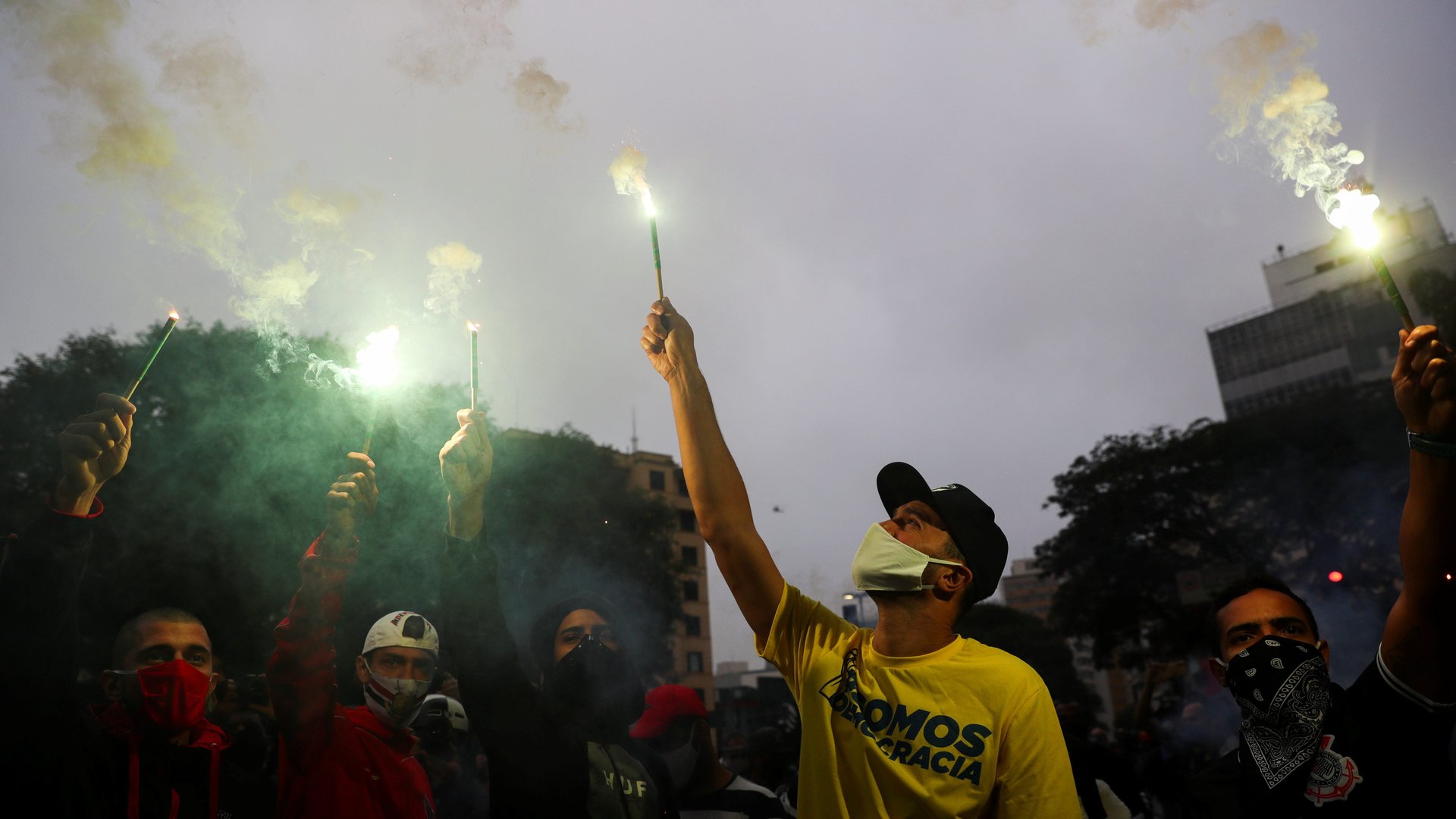People living in democracies don’t think their countries are very democratic
A survey on global perception of democracies has found that, while most people say they prefer living in democratic countries, fewer feel their own countries meet that definition.


A survey on global perception of democracies has found that, while most people say they prefer living in democratic countries, fewer feel their own countries meet that definition.
The 2020 Democracy Perception Index survey, released today by the Danish nonprofit Alliance for Democracies, collected responses from third-party apps on the Internet-connected devices of 124,000 respondents in 53 countries. It found that, on average, 78% of people surveyed think that democracy is important to have in their country. That’s comparable to last year’s figure of 79%, and represents the majority view in every country surveyed, with the lowest figure (50%) found in Iran.
However, there was a gap between the share of respondents who say democracy is important in their country and those who feel that their country is democratic. The survey calls this gap the “perceived democratic deficit.” And it’s a common impression: On average, 40% of people who live in democracies—those classed as “free” by the American nonprofit Freedom House—believe that their country is not actually democratic.
These results, collected by polling firm Dalia Research, have limitations. Respondents were asked, “In your opinion, how important is it for your country to be a democracy?” and “Think about your country today. How democratic do you think it is?” They could respond with an answer on a scale of zero to 10. Any score between zero and six was then counted as “non-democratic” or “not important.” This eliminates some of the nuance in respondents’ opinions; for example, of the 35% who said Canada is not a democracy, no distinction is made between those who rated it a zero and those who rated it as six.
In addition, only countries ranked by Freedom House as “free” were considered democracies. This excludes a subset of countries ranked “partly free” and generally considered to lean toward democratic values, including Colombia, North Macedonia, and Senegal. (Freedom House acknowledges that some “partly free” countries “might qualify as electoral, but not liberal, democracies.”)
Finally, the figures reflect respondents’ perceptions of their own countries. These are not always reflective of reality, and can be colored by external pressures or biases. For example, 84% of respondents in China said that democracy is very important for their country. But Freedom House gives China one of its lowest global freedom scores and classifies it as “not free.”
Still, the findings add credence to the human rights groups and government watchdogs who say democracy is in decline around the world. Last year, political rights and civil liberties deteriorated in 64 countries and improved in only 37 countries, according to Freedom House. It’s a continuation of a decline in global freedom that the organization has noted for each of the past 14 years.